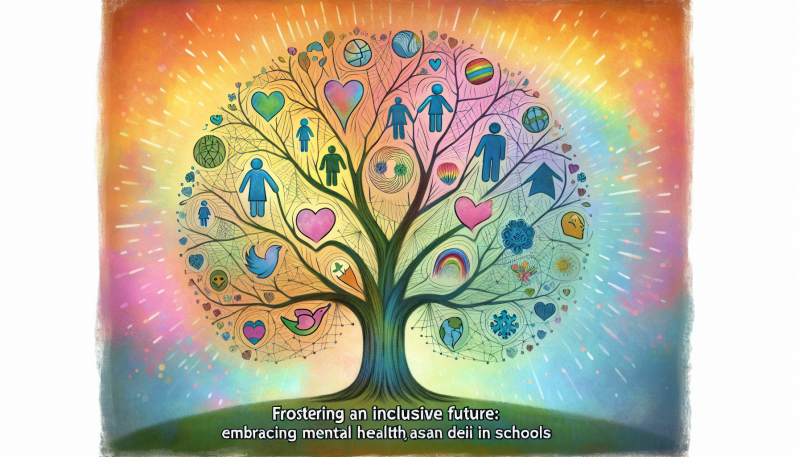As the educational landscape becomes increasingly diverse, educators recognize the critical need for classrooms that not only embrace diversity but also offer equitable and inclusive learning experiences. The challenge of nurturing an environment that caters to the mental health of every student, regardless of their background, is a complex yet vital objective. In this blog post, we will explore the essential role teacher training plays in harmonizing Diversity, Equity, and Inclusion (DEI) with mental health practices to create supportive educational spaces for all students.
Incorporating DEI principles into teacher training programs is not just beneficial; it’s paramount to addressing the kaleidoscope of students’ mental health needs. Extensive training in cultural competency equips educators with the skills to approach mental health with a sensitive and personalized method. For instance, teachers can learn about the various ways mental health can manifest across different cultures and socio-economic backgrounds, ensuring that no student’s struggle goes unnoticed or misunderstood.
However, applying DEI strategies in the context of mental health is not without its challenges. Teachers may grapple with unconscious biases, a lack of resources, or even their own discomfort when discussing mental health topics. Adequate training must address these obstacles, providing educators with continuous professional development, access to mental health experts, and a clear framework for implementing DEI in the classroom.
Evidence-based practices and real-life examples serve as beacons to guide teachers in successfully integrating DEI and mental health awareness. For instance, teachers can employ social-emotional learning curriculums that promote empathy and self-regulation, adjusted to reflect the diversity of their students. Schools like those embodying the spirit of Friendship Week can serve as case studies, illustrating how embedding mental health education within the fabric of the school culture leads to more inclusive and supportive environments.
Crucial to this conversation is the ability of teachers to recognize the signs of mental health struggles. Training programs should not only cover the symptoms of various mental health issues but also emphasize the importance of culturally responsive intervention strategies. Teachers must understand how cultural narratives around mental health can influence a student’s willingness to seek help or discuss their feelings.
The influence of teacher-student relationships on students’ mental health cannot be overstated. Training that focuses on creating strong, positive connections can have a profound impact. When students from diverse backgrounds feel genuinely seen and heard by their teachers, they are more likely to engage, perform, and flourish both academically and emotionally. This can include training teachers in active listening skills, fostering a sense of belonging within the classroom, and establishing trust through consistent, fair, and respectful treatment.
The objective of weaving DEI and mental health into teacher training is not just to cultivate an inclusive classroom, but to spark a wider cultural shift within the educational system. By engaging in thoughtful dialogue and practical action, educators, school staff, and educational influencers can lead the charge in ensuring that every student, irrespective of their identity, feels valued and supported.
In conclusion, the integration of DEI and mental health into teacher training is a critical step towards realizing the vision of an educational environment where every child can thrive. By empowering educators with the right tools and knowledge, we create the potential for a generation of students who are not only academically capable but also emotionally resilient and inclusive-minded. Let us commit to this journey together, for the mental well-being of our students is the bedrock upon which the future is built.



